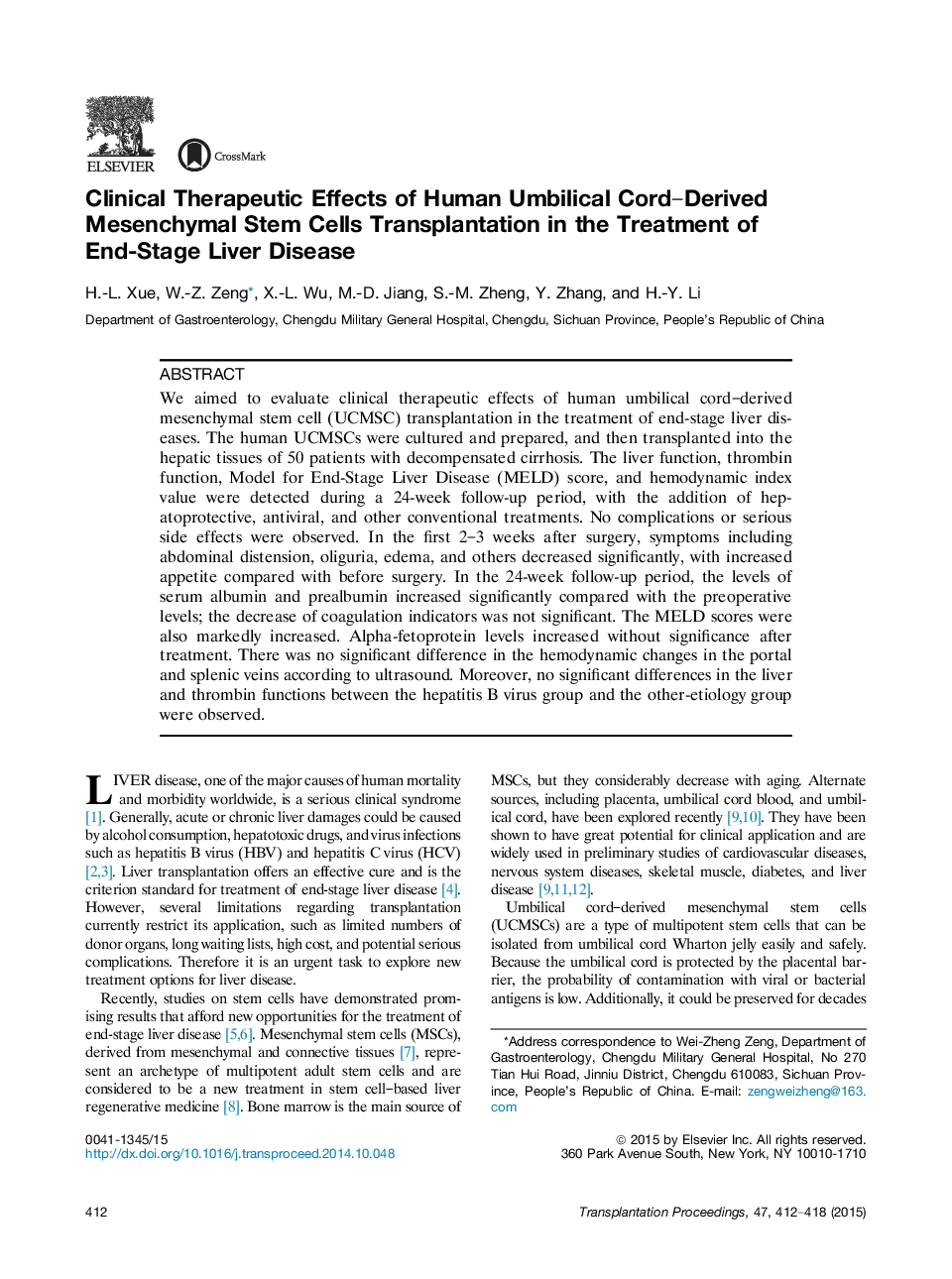| Article ID | Journal | Published Year | Pages | File Type |
|---|---|---|---|---|
| 4257619 | Transplantation Proceedings | 2015 | 7 Pages |
•This study evaluated the effects of hUCMSCs treatment for end-stage liver disease.•HUCMSCs transplantation is a new and effective method.•HUCMSCs transplantation may improve symptoms, liver function, and quality of life.•HUCMSCs treatment might be a novel therapeutic approach for chronic liver disease.
We aimed to evaluate clinical therapeutic effects of human umbilical cord–derived mesenchymal stem cell (UCMSC) transplantation in the treatment of end-stage liver diseases. The human UCMSCs were cultured and prepared, and then transplanted into the hepatic tissues of 50 patients with decompensated cirrhosis. The liver function, thrombin function, Model for End-Stage Liver Disease (MELD) score, and hemodynamic index value were detected during a 24-week follow-up period, with the addition of hepatoprotective, antiviral, and other conventional treatments. No complications or serious side effects were observed. In the first 2–3 weeks after surgery, symptoms including abdominal distension, oliguria, edema, and others decreased significantly, with increased appetite compared with before surgery. In the 24-week follow-up period, the levels of serum albumin and prealbumin increased significantly compared with the preoperative levels; the decrease of coagulation indicators was not significant. The MELD scores were also markedly increased. Alpha-fetoprotein levels increased without significance after treatment. There was no significant difference in the hemodynamic changes in the portal and splenic veins according to ultrasound. Moreover, no significant differences in the liver and thrombin functions between the hepatitis B virus group and the other-etiology group were observed.
